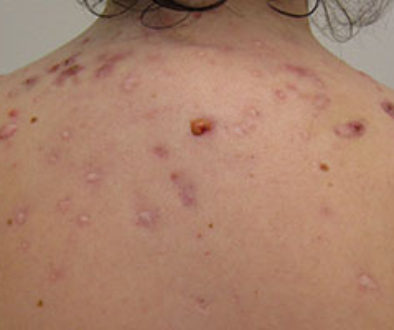Pimples And Vitamin Dietary Supplements
Because the majority of the worlds inhabitants endure from pimples in some unspecified time in the future in their lives, there isn’t a surprise that such efforts are invested to find out learn how to it. While there have been some definitive answers on whether or not acne is hormonally induced (sure), and what will be done to prevent it (prescribed drugs, certain natural cures, and many others), there are nonetheless many unknown elements that trigger acne.
Nevertheless, of all the many acne questions that science is yet to find solutions to, essentially the most controversial is whether or not or not weight loss plan has an effect on acne.
Traditionally, diet was regarded as linked to acne. Doctors and housewives alike believed [that a] excessive fats content material in ones food plan would trigger an oilier complexion, and this in turn would create acne breakouts.
Nonetheless, as time went on, science found no straight link between a food plan high in lipids (fat), and acne. Since acne is brought on by a bacterial progress in sebum trapped in clogged pores, there is no such thing as a such factor as “additional oil secretion”. So, for not less than the final 15 years, western medicine has claimed there isn’t a connection between eating regimen and acne.
Nevertheless, a research carried out in 1997 has rekindled the flame in the “weight loss plan causes zits” argument, and this time, with a bit extra heat.
This research, performed by Dr. Lit Hung Leung, states that Pimples breakouts are because the body can not create enough of Coenzyme A to break down the fatty acids that create sebum. The reason being, Coenzyme A might be the one most wanted enzyme within the body. This Coenzyme-A is what synthesizes intercourse hormones, and what breaks down fatty acids.
The one a part of Coenzyme-A that the body doesn’t produce itself is vitamin B5. So, if there’s a shortage of B5, there’s a shortage of Coenzyme-A. And if there is a scarcity of Coenzyme-A, the body will use it to synthesize sex hormones, not break down fatty acids.
So, you may see the place that is going…extra fatty acids, extra sebum production, more acne.
Now, the interesting thing is that Dr. Lit Hung Leung substantiated this declare by testing it on 100 people. The group took 10 grams or more per day of pantothenic acid ( B5 ), and used a B5 topical cream of 20% by weight. After 2-3, sebum production was lowered, and many people with acne seen a reduction. For these with extra extreme zits, the next dosage of B5 was used (approx. 15-20 grams per day), and therapy was extended to see an effect, sometimes as much as 6 months.
So, whereas one study doesn’t definitively show whether or not B5 can prevent or cut back pimples, it may well be value contemplating, notably for many who desire a pure or herbal remedy for pimples, and don’t need to use chemical substances corresponding to benzoyl peroxide, or other prescription acne treatments.
As with any medical therapy, it’s best to seek the advice of a physician earlier than making an attempt a B5 regimine.
